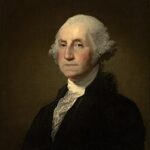The Critical Decision
In April 1793, President George Washington faced immense pressure from both political parties. The French Revolution had erupted into war with Britain and other European powers. Thomas Jefferson’s Democratic-Republicans urged support for France, America’s Revolutionary War ally. Alexander Hamilton’s Federalists favored Britain due to crucial trade relationships. ⚠️ Washington recognized that choosing sides could devastate the fragile 17-year-old nation.
The Proclamation of Neutrality
On April 22, 1793, Washington issued his famous Neutrality Proclamation. The document declared America would remain “friendly and impartial” toward all warring nations. Citizens were forbidden from providing aid or arms to any belligerent country. 📊 This marked the first major test of American foreign policy independence.
Strategic Wisdom
Washington’s decision reflected remarkable strategic foresight. America possessed fewer than 4 million citizens and minimal military resources. 💰 The nation’s economy depended heavily on international trade, particularly with Britain. Entering European conflicts would have jeopardized America’s survival and prosperity during its most vulnerable period.
Impact:
Immediate Economic Benefits
Washington’s Neutrality Proclamation generated immediate economic advantages for America. The young nation became a profitable trading partner with all European powers. 💰 American merchants sold goods to both Britain and France, significantly boosting national revenue. Neutrality transformed America into a valuable neutral carrier, transporting goods between warring nations safely.
Long-term Strategic Success
The neutrality policy established crucial precedents for American foreign relations. It demonstrated that America could chart an independent course despite European pressures. 🌍 This decision influenced American isolationist tendencies for over a century. The policy allowed America to focus resources on westward expansion and internal development rather than costly foreign wars.
Constitutional and Political Legacy
Washington’s proclamation strengthened presidential authority in foreign affairs. It established the executive branch’s primary role in determining international policy. 🔥 Though controversial initially, the decision proved historically vindicated. America avoided the devastating costs of European conflicts while building strength and prosperity. Modern historians consistently praise this decision as foundational to America’s eventual rise as a global power.
